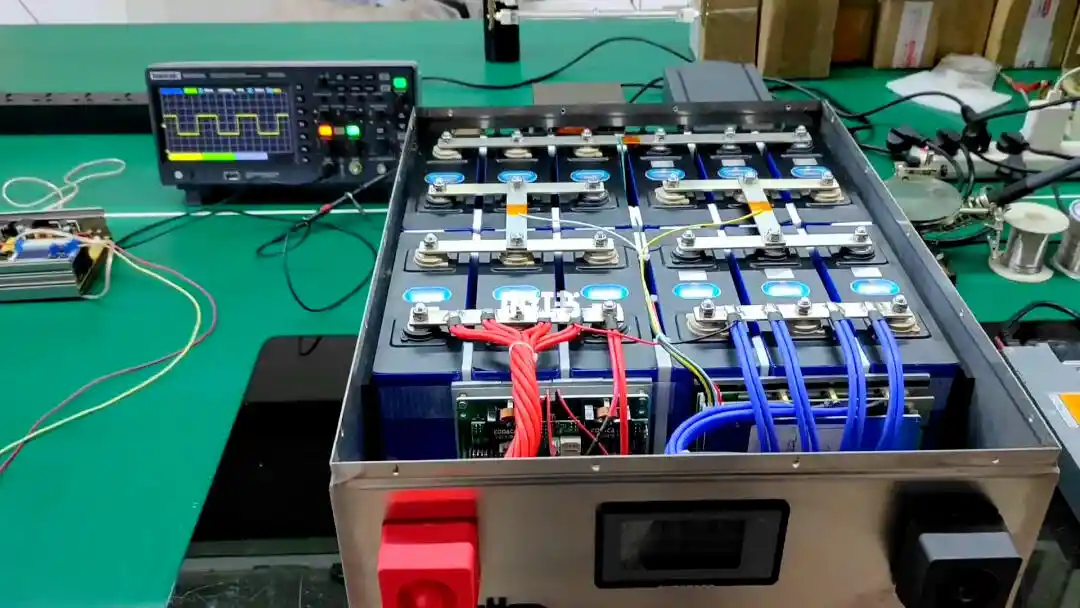Blog
What Is Lithium Battery Protection Mode?
2025-06-27 | Eric

Ever wondered why your lithium battery suddenly stops working—even though it’s not empty or damaged? It could be battery protection mode at work.
This smart feature is built into many modern batteries to prevent overheating, overcharging, or deep discharge. In short, it keeps your battery safe and lasting longer.
Let’s break down what this mode actually does, how it works, and what you can do when it gets activated.
What Is Battery Protection Mode?
Battery Protection Mode is a safety feature managed by something called a Battery Management System (BMS). It constantly checks the health of the battery—voltage, temperature, current, and internal resistance.
When it detects anything abnormal (like high temperature or low voltage), it automatically cuts off power to prevent further damage.
This system protects your battery from:
- Overcharging
- Deep discharging
- Overheating or freezing
- Short circuits
- Internal faults
Key Types of Battery Protection
1. Undervoltage Protection
When the battery voltage drops too low, the BMS stops further discharge. This is crucial because deep discharge can permanently damage lithium cells.
What to do:
Use a multimeter to check voltage. If it’s too low (below 2.5V per cell), use a charger with an activation or boost function to bring it back to a safe level—usually 12V or 24V depending on the battery pack.
2. Overvoltage Protection
Charging beyond the safe voltage (typically 4.2V per cell) can lead to swelling, overheating, or even fire.
What to do:
Immediately disconnect the charger. Let the voltage stabilize before reconnecting. Avoid using unregulated chargers.
3. High-Temperature Protection
If the battery temperature rises too much (above 60°C for most lithium batteries), the BMS shuts it down to prevent thermal runaway.
What to do:
Stop using the battery. Move it to a cool, dry place with good ventilation. Once it cools, it should reset automatically.
4. Low-Temperature Protection
Lithium batteries struggle in freezing temperatures. Cold weather reduces their capacity and charging ability, and in extreme cases, internal crystallization can occur.
What to do:
Warm up the battery before use. Some smart BMS systems even allow you to monitor temperature via a connected app.
5. Current Protection
Excess current—usually caused by overload or short circuits—can overheat the battery. The BMS quickly cuts off the flow to avoid cell damage.
What to do:
Remove the load or fix the short circuit. The BMS will automatically reset once the system returns to normal.
6. Internal Battery or Wiring Fault Protection
If the battery is aged, damaged, or has a faulty connection, protection mode will trigger to prevent failure or accidents.
What to do:
Inspect for loose wires, damaged cells, or broken connections. In some cases, the battery may need servicing or replacement.
Do All Batteries Have a Protection Mode?
| Battery Type | Has Protection Mode? | Notes |
|---|---|---|
| Lithium-ion | ✅ Yes | Comes standard with BMS |
| LiFePO4 | ✅ Yes | Strong safety and long cycle life |
| Deep-cycle (AGM) | ☑️ Sometimes | Premium models may include BMS |
| Lead-acid (flooded) | ❌ No | Needs manual maintenance |
Lead-acid batteries are cheaper but require regular maintenance—like checking electrolyte levels, avoiding deep discharge, and preventing overcharging.
Lithium batteries, while more expensive upfront, save money and hassle in the long run thanks to their smart protection systems.
Why Battery Protection Mode Matters
Still wondering why all this matters?
Without protection mode:
- Overcharging can destroy your battery
- Overloading can lead to fire or explosion
- Extreme temperatures can shorten lifespan dramatically
With protection mode:
- Your battery lasts longer
- You reduce the risk of accidents
- You save money on replacements
For anyone using lithium batteries in forklifts, solar setups, e-bikes, or power backups—BMS isn’t optional; it’s essential.
Conclusion
Battery protection mode is like insurance for your battery. It quietly guards against common risks and extends the life of your investment.
When it’s triggered, don’t panic—just check the issue, take corrective action, and the system will usually reset itself.
Popular Articles
Contact Details
Worktime :Monday to Friday 9am - 6pm (HKT)
WhatsApp/Wechat/Mobile :+86XXXXX
Email : info@lifepo4cellstore.com
